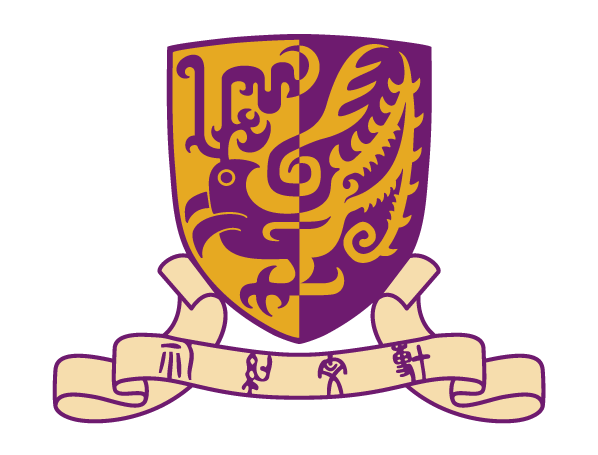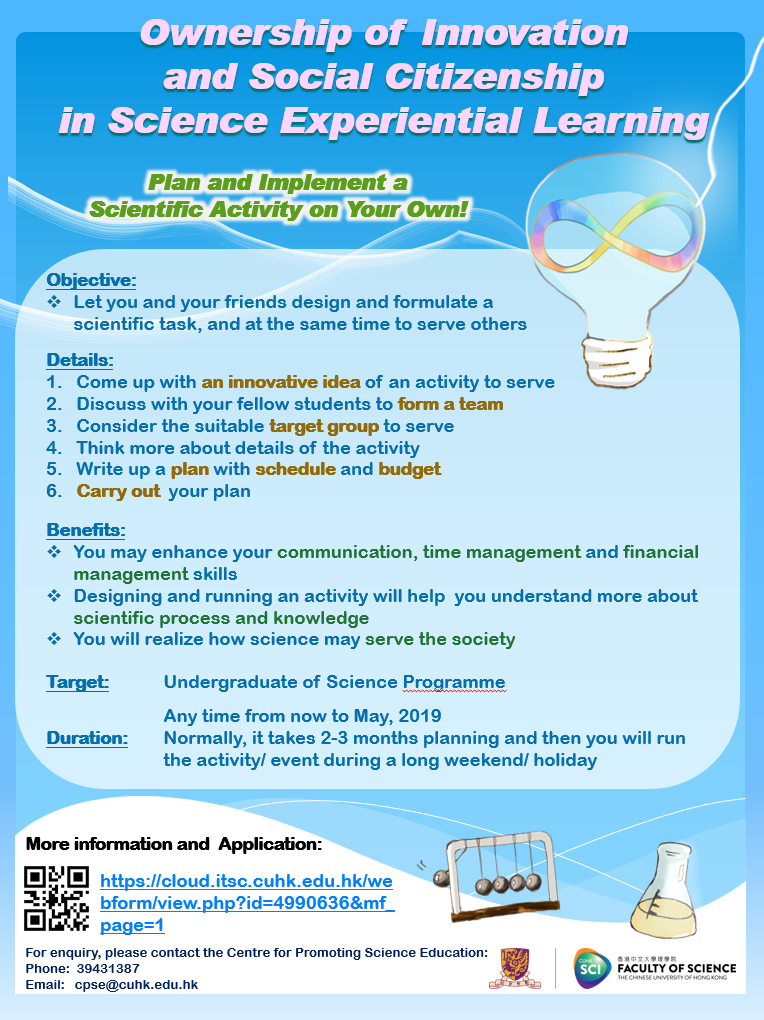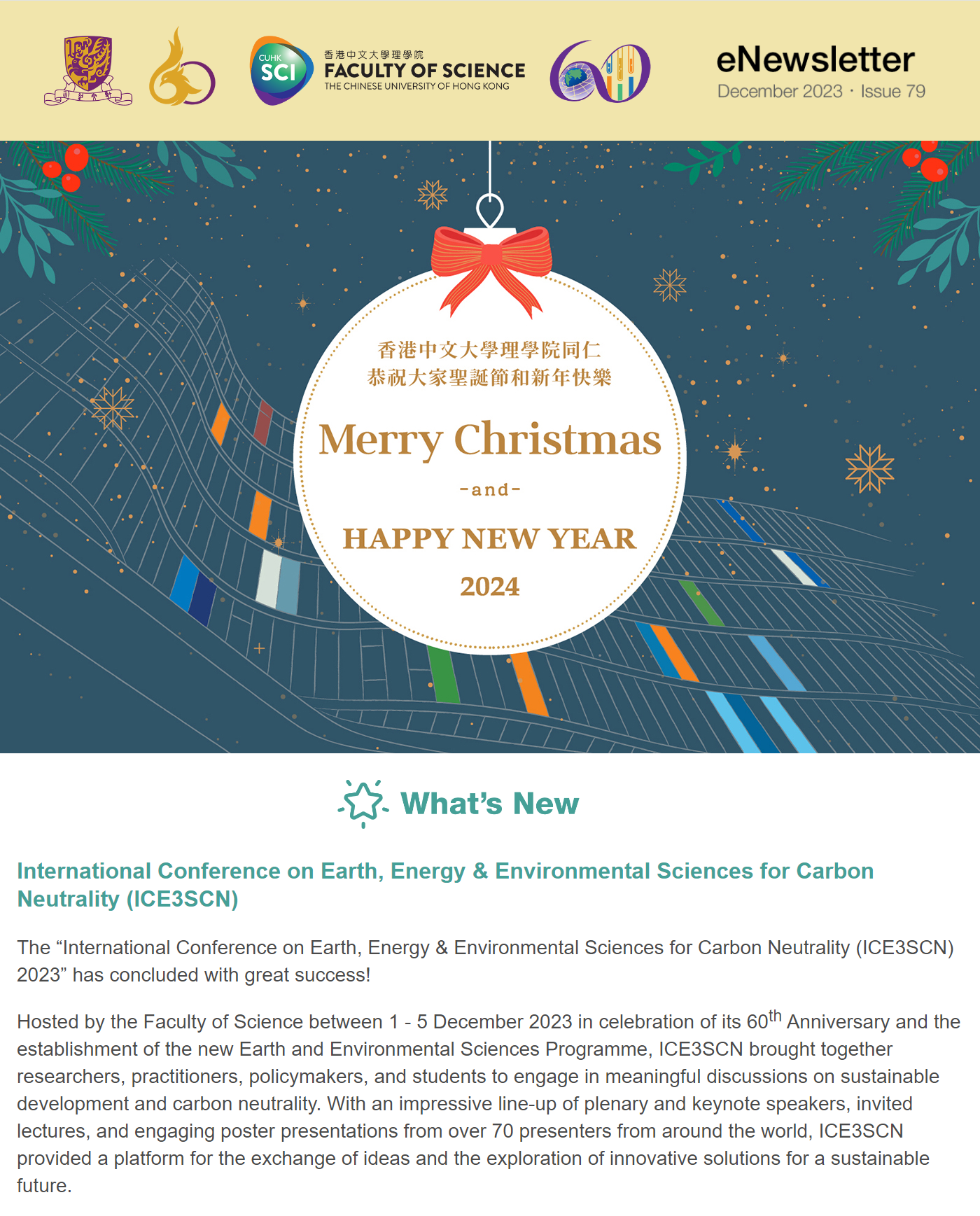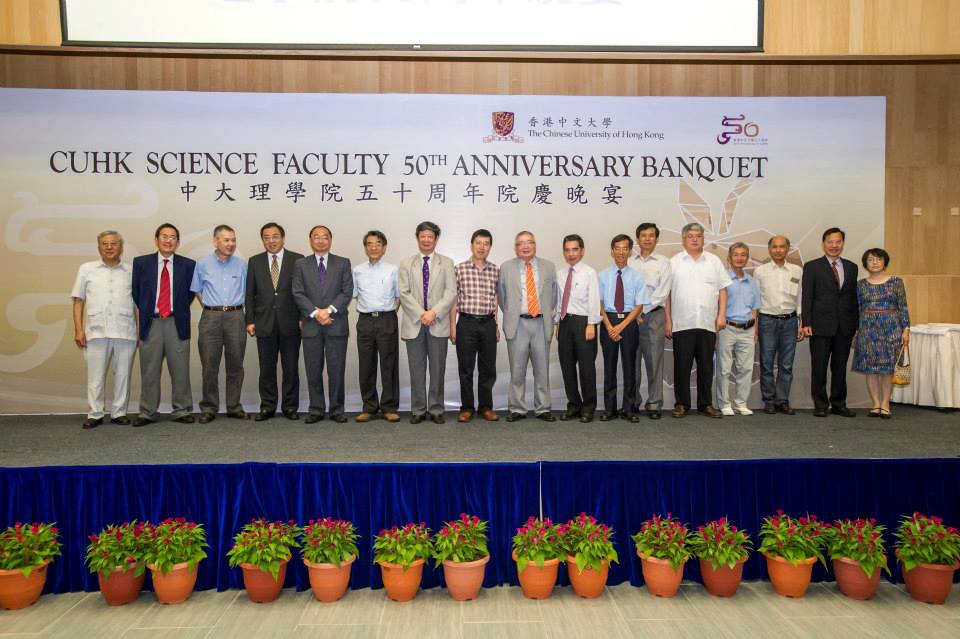Ownership of Innovation and Social Citizenship in Science Experiential Learning
Overview
Ownership of Innovation and Social Citizenship in Science Experiential Learning (This Scheme) aims at encouraging undergraduate students to initiate a science project (consists of events or tasks or activities) with the purpose to serve the others in the society.
This Scheme emphasizes student-driven and student-centered spirit. Students would be in charge of the whole project, from planning, budgeting to implementing their scientific events or tasks or activities while at the same time, to serve their target group.
Details of the project
Students should first form a team (with a coordinating student and at most three other students) and come up with an innovative idea, of doing something for a decided target group. The team can then start to plan the events or tasks or activities. The team will take care of everything from scratch to finish, including budgeting and financial control, process and logistic arrangement, resource and material acquisition, human effort deployment and management, and final summary and review. Teacher, if any, may act as a supervisor to monitor and provide guidance whenever necessary.
Duration and timelines vary among different teams and projects. Students can decide their own schedule and possibly discuss with their teacher. The project mainly divides into 3 PHASES. Financial support will be provided based on the budget, which may include everything, e.g., recruitment of student helpers. The underlying condition is the spending must satisfy university accounting rules.
1. Planning and Preparation Phase (usually need 1 – 2 months)
- Come up with an innovative idea
- Discuss with your schoolmates and form into a team
- Choose a certain target group in society to serve
- Design the nature of the scientific events or tasks or activities, e.g. exhibition, sight-seeing, drama, song lyric, social media, teaching, education visits, games, etc.
- Prepare project details which include scheduling and budgeting. You should go to the online application, run through it and see what will be needed. This indeed will help you to formulate your plan.
2. Implementation Phase (could be one day, during holiday time, a few weeks, or continuously)
- Carry out the designed events or tasks or activities to target group
- Suitably improvise and modify the original plan
- Collect feedback from users or target recipients
- Document and control the expenditure, then reimburse from This Scheme.
3. Reflection Phase
- Do a summary and review within the team after the events or tasks or activities.
- Share the experience in a sharing session for teams, usually held at the end of a school term.
Benefits
| 1. | Enhance your communication, time management and financial management skills |
| 2. | Understand more about scientific process and knowledge |
| 3. | Realize how science may serve the society |
| 4. | Well-planned work with outreach objective may have chance to implement the design in overseas trip. |
Application
| Eligibility | Undergraduates of Science Programme |
| Application period | Any time from now to May, 2019 |
| Register | Online Registration |
Normally, it takes 2-3 months planning and then you will run the activity/ event during a long weekend/ holiday















